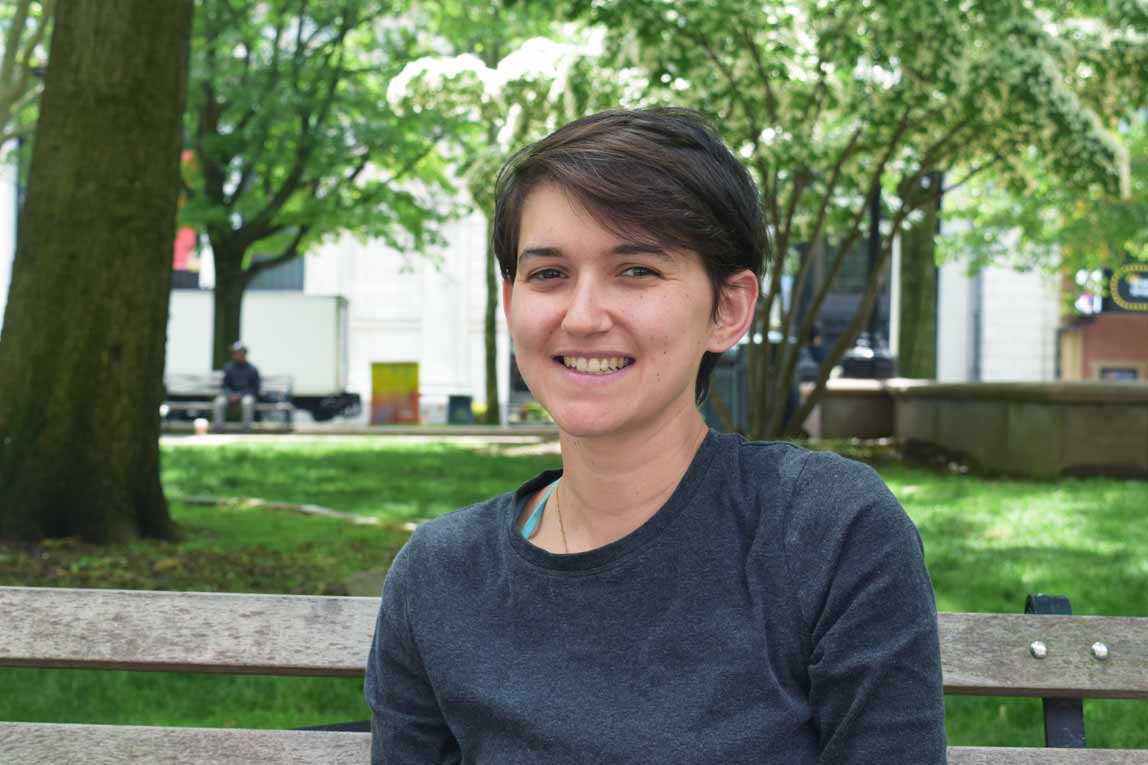
For many schools, the classroom setting is framed by four walls and a blackboard. At Newtown”™s Two Coyotes Wilderness School, however, the setting is a lot more invigorating.
Founded in 2000, the school uses the outdoors as the classroom for today”™s digitally focused children. Or, as Executive Director Maggie Gotterer described it, as a way to get “kids outdoors and get them to reconnect with a love of learning that maybe they weren”™t getting in school.” Gotterer added that the school”™s mission is to provide an academic and emotional appreciation of nature.
“Parts of it are about environmental education and learning about nature and being comfortable outdoors,” she said. “The students learn about trees, animals, environment, weather and learn about primitive skills and naturalist skills. They learn how to make a friction fire or a debris hut and camp outside in a hut built with materials from the forest. You can make tools out of natural materials ”” make art from things you can find outside. All of these things can engage your senses in different ways.”
The school also encourages students to explore an introspective understanding of what makes them tick. Gotterer noted that the youthful participants find themselves addressing the “challenges they encounter outside, such as being uncomfortable when outside in the rain or outside all day or asking them to gain the different skills we introduce to them. This is an opportunity for them to look at who they are and ask why it is making them uncomfortable. They ask themselves, ”˜What am I learning from this experience?”™ And they see nature as a teacher and a place where they can be comfortable with themselves.”
The school hosts its programs at Sticks & Stones Farm in Newtown and Holcomb Farm in Granby. The school is running its summer camp program, which stretches through August and offers weeklong day camp experiences ranging from traditional arts and crafts to wilderness skills and craft working tools. In the autumn, the school will start a new semester of its Forest Learning Program for children ages 5 to 12 years old. This takes students out of class once a week for a full day immersed in nature. The program runs for the duration of the school year. There is also a pair of programs designed for home-schooled students, one for those ages 5 to 12 and another targeting those ages 13 to 16.
“We have a caregiver program from birth to 5, where the caregiver comes with the child and they do the half-day program together for three hours once a week,” Gotterer said. “It is a really great opportunity for adults and children to be together and the adult learns as much as the child.”
And how does today”™s youth ”” which never knew of life without the internet, cell phones and cable television ”” react when they are unplugged from their screens and placed face to face with the local flora and fauna?
“Some kids are hungry for that experience,” Gotterer said. “Some kids have grown up in a community, family or culture where they balance between being outdoors and playing video games. Some kids might have a harder time disconnecting, which is why our mentorship program is so important ”” we take the core concepts of the program and tailor it to the needs of the child.”
The school”™s mentors include several former students who are now young adults and ready to share nature with the next generation. Also included as mentors are educators, outdoorsmen, artists and anthropologists. Gotterer added that the only time when students and mentors are not outdoors is during severely inclement weather, such as snowstorms and severe thunderstorms.
Gotterer is eager to partner her organization with local schools. It has created weeklong custom programs for public schools in Hartford and New Haven. She estimated that the average cost for participation in Two Coyotes is $11 per hour, and she is hoping to offer financial incentives to attract students who would otherwise be unable to participate.
“We try to keep it affordable while honoring the fact that our staff are skilled mentors that deserve a living wage,” she said. “There are scholarships for all of our programs, so we do our best not to turn anyone away. We have generous donors that support our scholarship funds, and we hope to do more fund-raising and reach out to different foundations in Connecticut.”





















